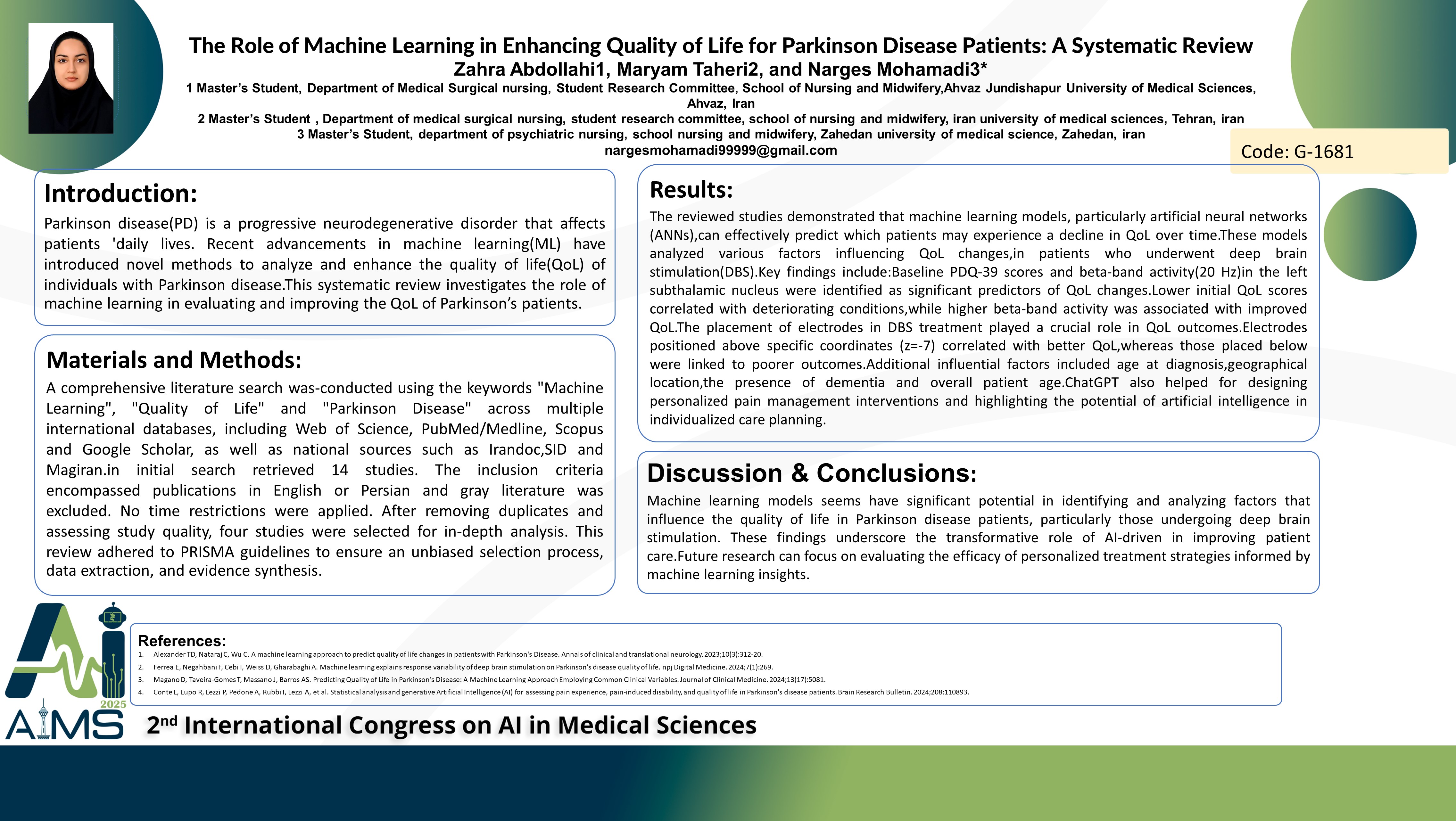: The Role of Machine Learning in Enhancing Quality of Life for Parkinson Disease Patients: A Systematic Review
Code: G-1681
Authors: Zahra Abdollahi ℗, Maryam Taheri, Narges Mohamadi *
Schedule: Not Scheduled!
Tag: Intelligent Virtual Assistant
Download: Download Poster
Abstract:
Abstract
Background and aims: Parkinson disease(PD) is a progressive neurodegenerative disorder that affects patients 'daily lives. Recent advancements in machine learning(ML) have introduced novel methods to analyze and enhance the quality of life(QoL) of individuals with Parkinson disease.This systematic review investigates the role of machine learning in evaluating and improving the QoL of Parkinson’s patients. Method: A comprehensive literature search was-conducted using the keywords "Machine Learning", "Quality of Life" and "Parkinson Disease" across multiple international databases, including Web of Science, PubMed/Medline, Scopus and Google Scholar, as well as national sources such as Irandoc,SID and Magiran.in initial search retrieved 14 studies. The inclusion criteria encompassed publications in English or Persian and gray literature was excluded. No time restrictions were applied. After removing duplicates and assessing study quality, four studies were selected for in-depth analysis. This review adhered to PRISMA guidelines to ensure an unbiased selection process, data extraction, and evidence synthesis. Results: The reviewed studies demonstrated that machine learning models, particularly artificial neural networks (ANNs),can effectively predict which patients may experience a decline in QoL over time.These models analyzed various factors influencing QoL changes,in patients who underwent deep brain stimulation(DBS).Key findings include:Baseline PDQ-39 scores and beta-band activity(20 Hz)in the left subthalamic nucleus were identified as significant predictors of QoL changes.Lower initial QoL scores correlated with deteriorating conditions,while higher beta-band activity was associated with improved QoL.The placement of electrodes in DBS treatment played a crucial role in QoL outcomes.Electrodes positioned above specific coordinates (z=-7) correlated with better QoL,whereas those placed below were linked to poorer outcomes.Additional influential factors included age at diagnosis,geographical location,the presence of dementia and overall patient age.ChatGPT also helped for designing personalized pain management interventions and highlighting the potential of artificial intelligence in individualized care planning. Conclusion: Machine learning models seems have significant potential in identifying and analyzing factors that influence the quality of life in Parkinson disease patients, particularly those undergoing deep brain stimulation. These findings underscore the transformative role of AI-driven in improving patient care.Future research can focus on evaluating the efficacy of personalized treatment strategies informed by machine learning insights.
Keywords
Machine Learning,Quality of Life,Parkinson Disease, Systematic
